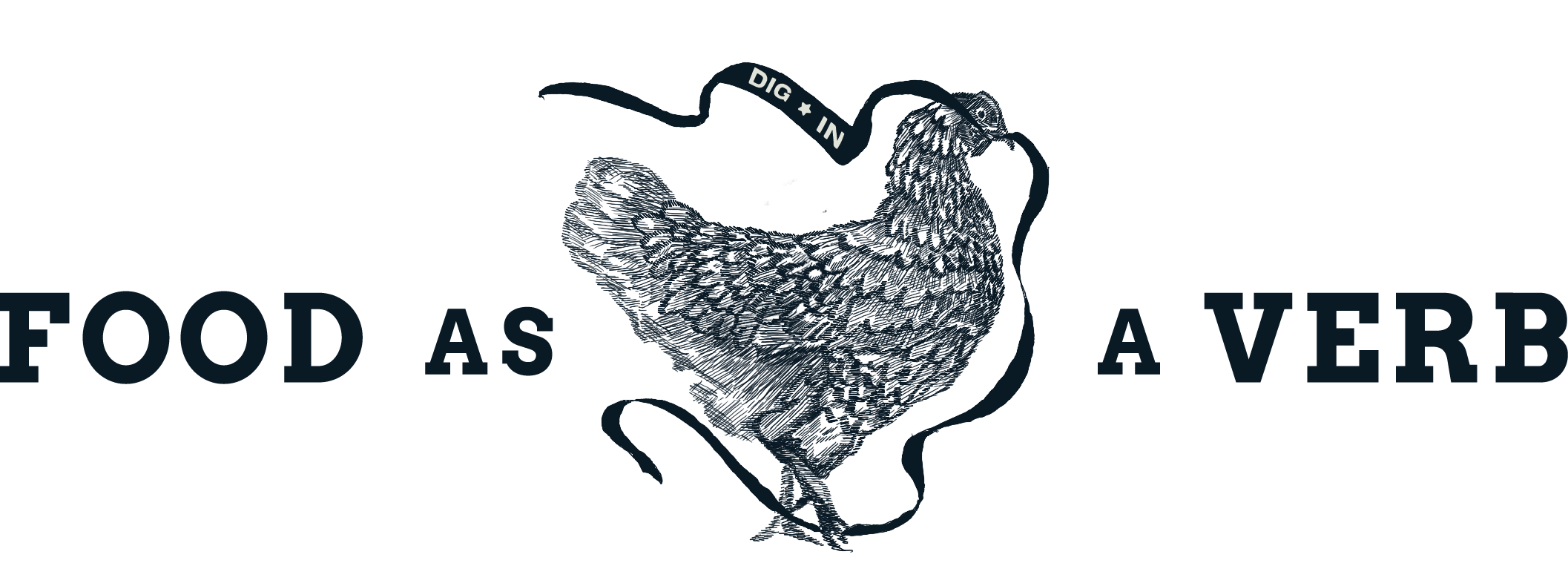The whole continent in one Ooltewah strawberry.
Thoughts on sweetness, labor, bird flu.
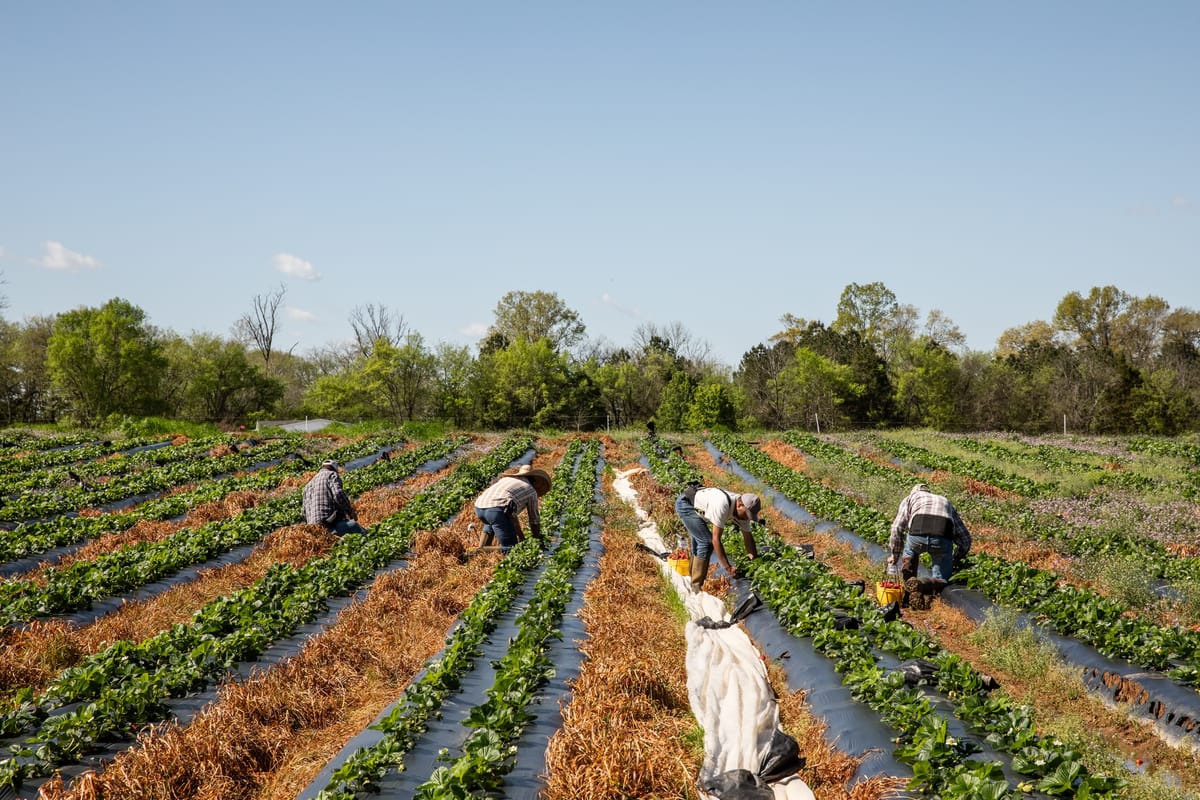
Tasting a fresh, field-grown strawberry is so unlike tasting a store-bought strawberry. One explodes like an Imax, the other's muted, like a transistor with a short antenna. The same word shouldn't be used to describe the two experiences. Call the grocery store fruit something else. Sawberry. S-berry. Something.
A field strawberry lights up your mouth; you taste ... red. Don't get me wrong; store-boughts are good. We eat them frequently. But a field strawberry? Picked just minutes ago from one row of 16 acres of Ooltewah soil?
So often, my words don't hold water to Sarah's images. Just look. They're this good.
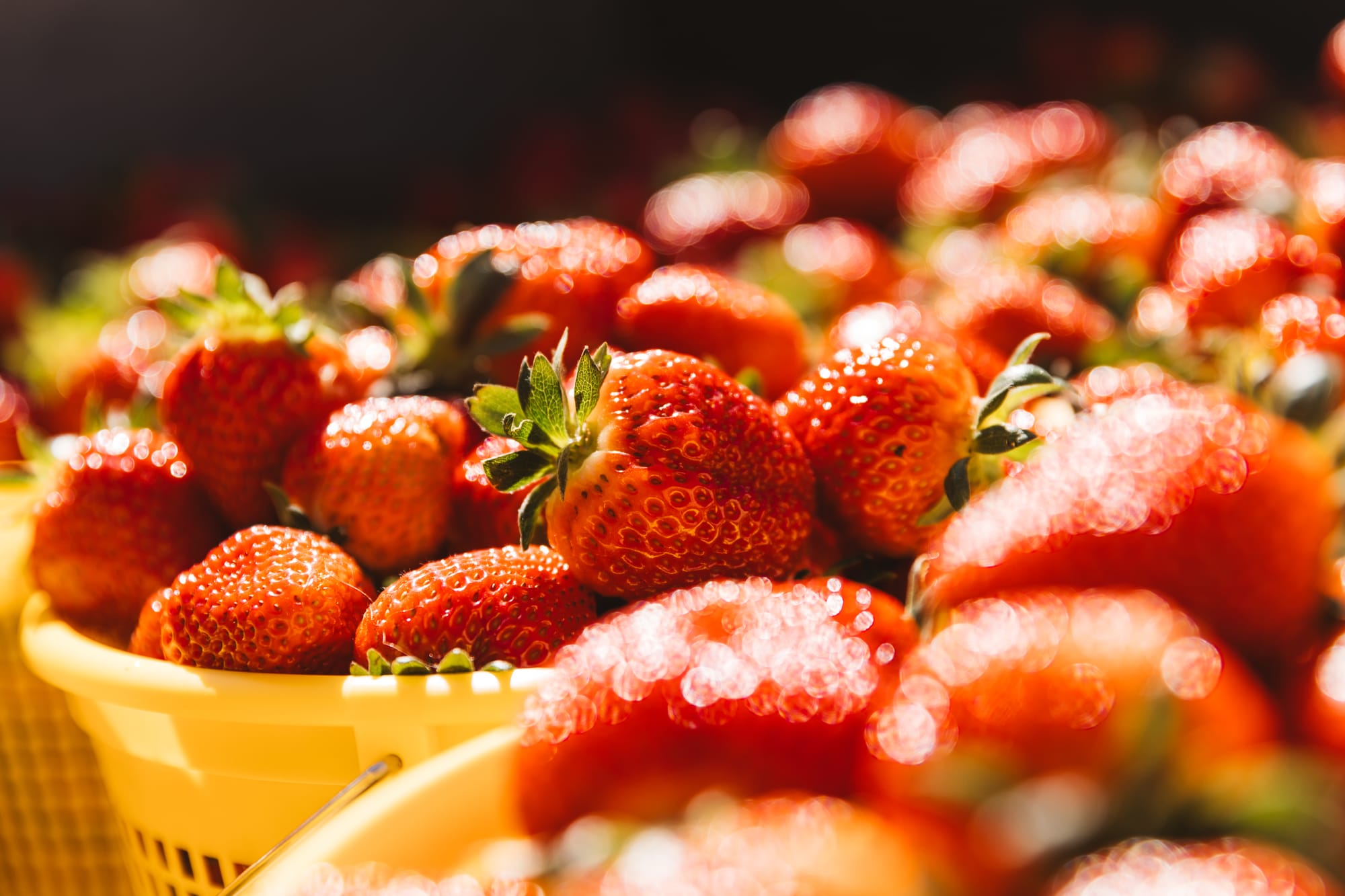
This Sunday, we take you to Smith-Perry Berries Farm in Ooltewah, where beloved farmer and Ooltewah-native Aubie Smith harvests and sells the gorgeously good fruit from some 200,000 strawberry plants. Folks come from miles around. Easy to see why.
Standing there with Smith in his fields, the moment felt like a microcosm for so many Food as a Verb objectives and goals, as if these strawberry fields were some CliffNotes for our whole mission:
- Strawberries grown by local hands are worthwhile. Support local farmers. Tell their story.
- These fruits are grown in local soil and dirt. Protect our natural landscape. Create policies that make farming easier, not so damn hard. (More stories on this soon.)
- An unbelievable large community makes this possible. See more clearly the relationships infused with every bite we eat. It's never just a strawberry.

Food as a Verb thanks Little Coyote, our sustaining partner, for its generous support.
Now open in St. Elmo, Little Coyote blends together Texas barbeque, Cuban, Caribbean and Southwestern influences – smoked meats, stunningly original tortillas, 100 varieties of tequilas, sotols and mezcals – for a family-style restaurant experience unlike any other in Chattanooga.
Behind us, scattered in rows, working under wide-brimmed hats and on knees that bend up-down 1,000 times a day, are Smith's workers. One is a white Tennessee woman who's been "picking strawberries for 40 years." The others are H2A migrant workers, who've traveled here from Mexico on a bus trip that takes 36 hours.
They'll stay for 10 months or so. Smith gives housing, food, support. They've missed birthdays back home, the birth of children and grandchildren. Besides the strawberry fields, Walmart is often the only place they go.
"I provide housing," Smith said. "They live in the house I grew up in."
So when I bite into this strawberry, I'm tasting the fruits of a line of relationships from here throughout North America. This strawberry may not get picked without Monterrey, Mexico. Or that 36-hour bus company. Or Canada, where the plants originate. Or Smith. Or even Walmart.
Bite into one Ooltewah strawberry and you find the whole continent.
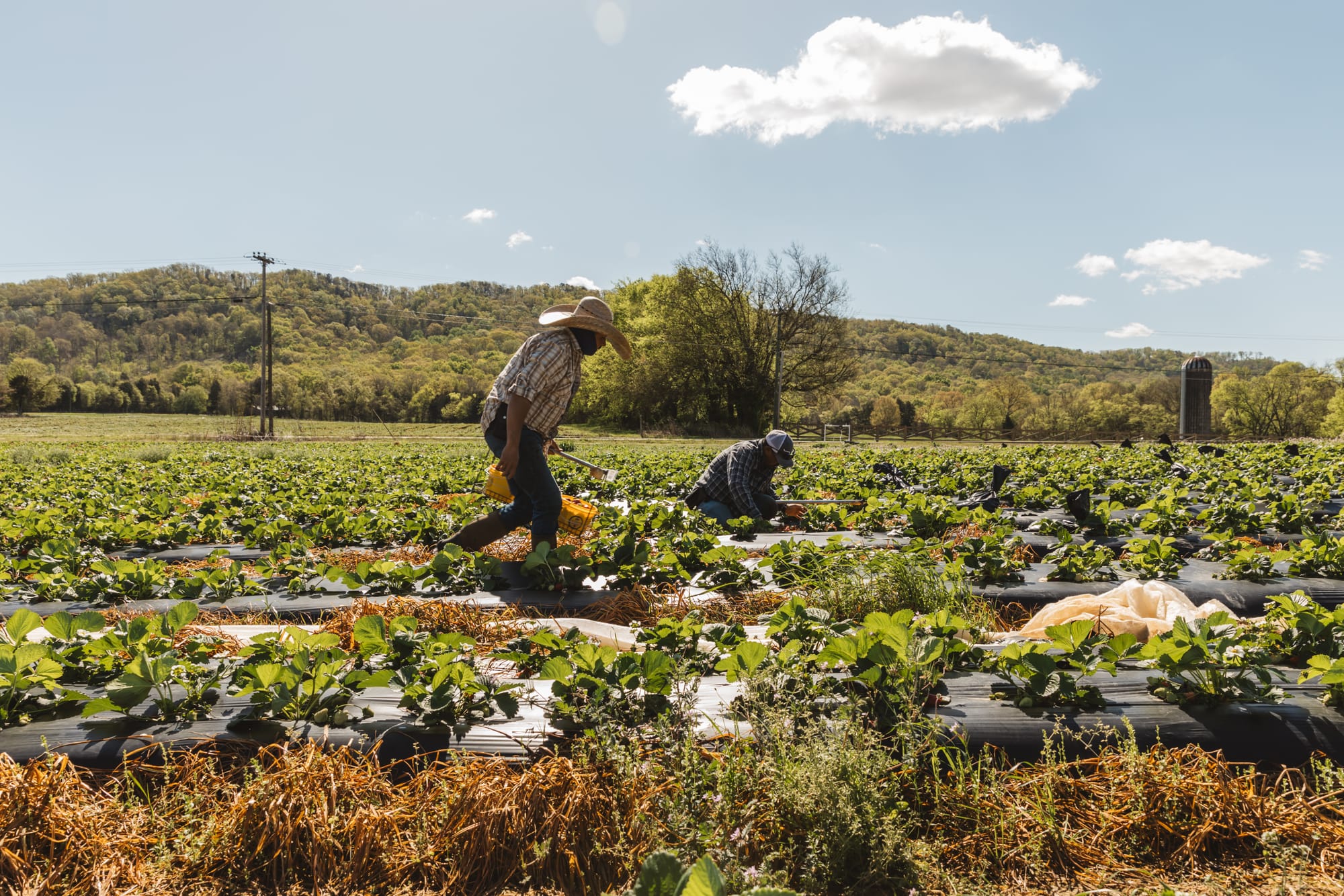
It is vastly humbling; we are awestruck when we see it clearly, the bounty of relationships in our lives.
Sometimes, these relationships taste like sweetness. Other times, like disease.
Avian Flu in the Southwest, but not here, top vets say.
In late March, USDA detected highly pathogenic avian influenza (HPAI) in dairy cattle herds stretching from Texas, Michigan, New Mexico, Kansas and Idaho. Many of the infected cattle were traced back to farms in Texas where, in early April, a confirmed case of HPAI was announced in a human there.
Today, cattle in eight states have been confirmed as positive cases.
"Decreased milk production and rumination, thicker milk, and symptoms similar to pneumonia have been reported," said Dr. Lew Strickland, Extension Veterinarian with the University of Tennessee, in a series of statements.
"Tests so far indicate that the HPAI detected in dairy cattle is the same H5N1 ... that has been affecting wild birds and commercial and backyard poultry flocks in the U.S. since early 2022. Initial testing has not found changes to the virus that would make it more transmissible to humans," said Strickland.
Strickland said Tennessee Dept. of Agriculture has not received any reports of HPAI-infected cattle.
"While waterfowl are the prime suspects, HPAI is in the wild bird population in general. Cattle producers should be on alert for cattle displaying respiratory symptoms and other abnormal behavior. Bovine Influenza A Virus (BIAV) has not been detected in beef cattle, that doesn't mean it isn't there. Biosecurity is critical," Strickland continued.
Cattle owners should practice careful biosecurity measures, Strickland said:
- "Minimize or eliminate (when possible) poultry and livestock species access to open water (ponds, wetlands and other water sources) frequented by wild waterfowl."
- "Monitor livestock for signs of illness (decreased milk production and feed intake, fever, change in feces, etc.)."
- "Monitor barn cats, wild waterfowl and other wildlife often found around livestock operations for illness or unexplained deaths."
- "House poultry separately from other livestock and minimize poultry access to pastures where other livestock graze."
- "Minimize or eliminate poultry, waterfowl and wildlife access to shared water sources and feed resources."
- "If your herd shows symptoms of infection, consult your veterinarian or the TN State Veterinarian’s Office immediately."
For more info, contact Strickland at askdrlew.tennessee.edu
Food as a Verb was created in part to strengthen our local food economy; nobody knows better how to diversify, protect and produce natural resources than our own farmers. By better understanding these relationships and the farmers who cultivate them, we all will benefit by living in healthier, safer and, yes, sweeter communities.
See you Sunday.
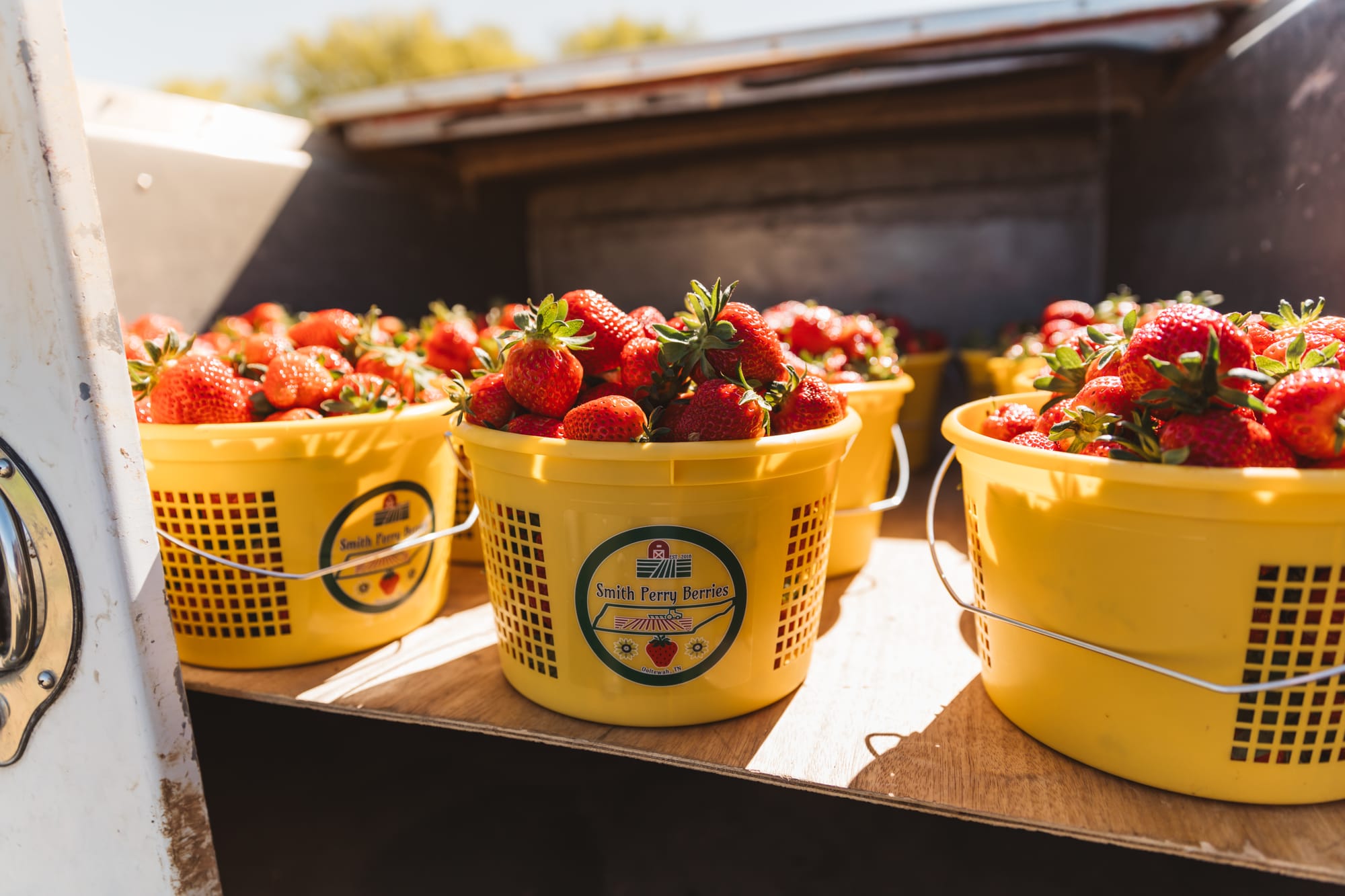
All photography by Sarah Unger (sarah@foodasaverb.com)
All design by Alex DeHart
All words by David Cook (david@foodasaverb.com)
Story ideas, questions, feedback? Interested in sponsorship or advertising opportunities? Email us: david@foodasaverb.com and sarah@foodasaverb.com.
This story is 100% human generated; no AI chatbot was used in the creation of this content.
Food as a Verb thanks our sustaining partners for their generous support.





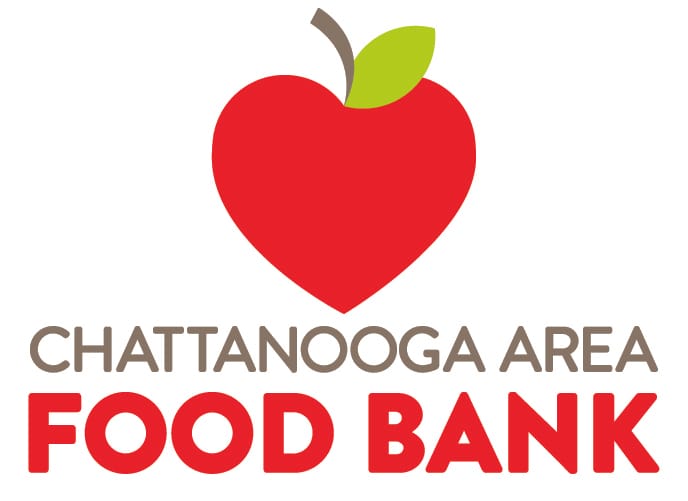
Society of Work is a shared coworking space designed with business flexibility in mind and the resources to help like-minded people connect and create amazing things together. From private offices to 24/7 coworking memberships, we provide the space you need to get work done. For more than 25 years, Lupi's has served locally-sourced, creatively made and award-winningly delicious pizza pies from five nearby locations. Female-and-locally owned, Divine Goods offers beautifully curated gifts for every occasion. Be divine and send someone special a Divine Goods gift - locally sourced when possible, and always thoughtful. Tucker Build offers Chattanooga a commercial construction firm made up of design-build experts specializing in the planning, building and managing process. Niedlov's Bakery & Cafe, a Main St. anchor, has elevated our city's bakery experience to beautiful levels while strengthening community in immeasurable ways. The Chattanooga Area Food Bank believes that no one should go hungry, and through our network of over 250 hunger-relief partners, we provide equitable access to food and resources to end hunger today and build pathways for a healthy, hunger-free future tomorrow.
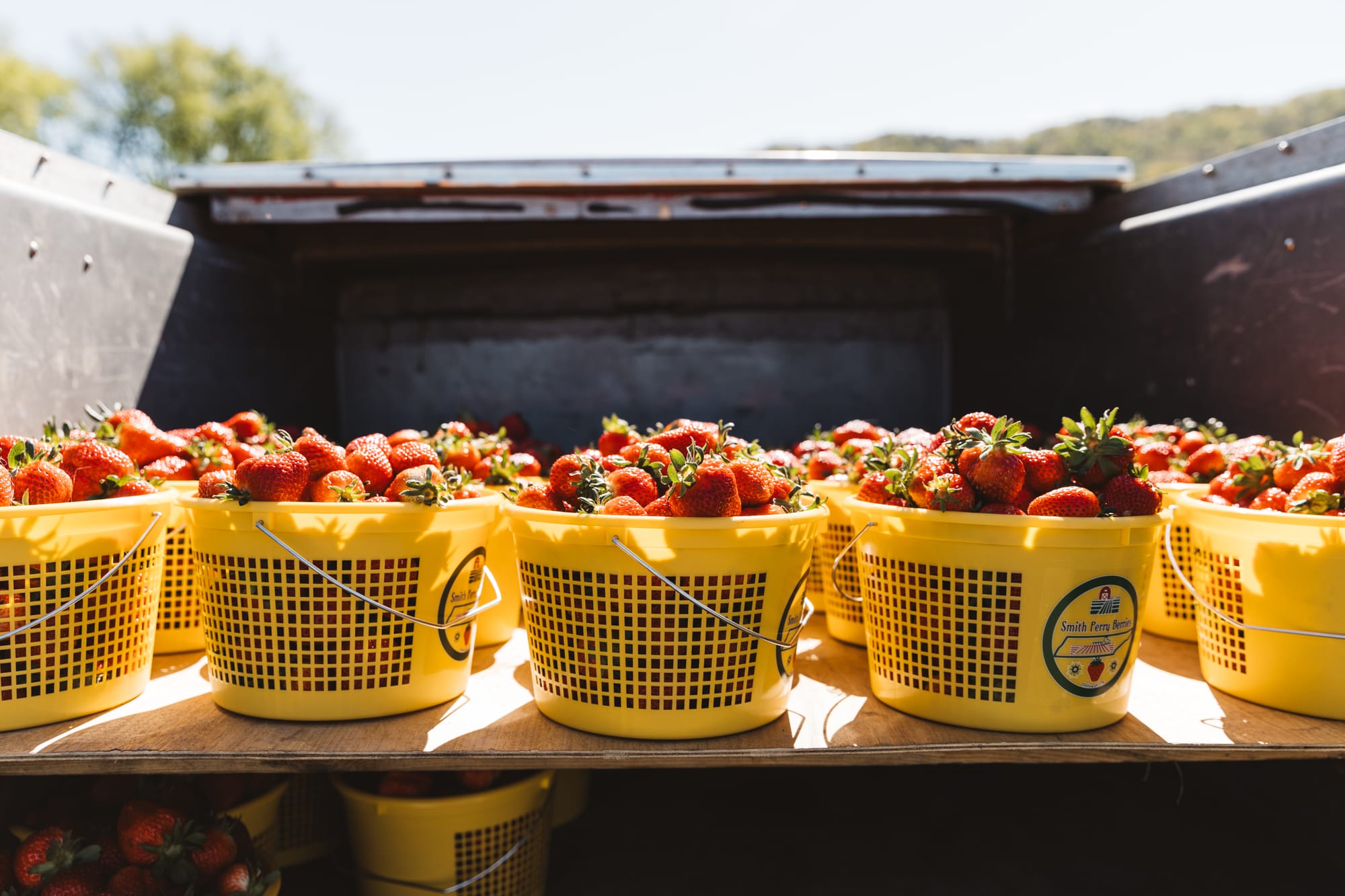
Regional Farrmers' Markets
Regional Farmers' Markets
- Main St. Farmers' Market
Corner of W. 20th and Chestnut St., near Finley Stadium
Wednesday, 4 - 6pm
- Brainerd Farmers' Market
Grace Episcopal Church, 20 Belvoir Ave, Chattanooga, TN
Saturday, 10am - noon
- Chattanooga Market
1820 Carter Street, Sunday, 11am - 4pm
- Fresh Mess Market
Harton Park, Monteagle, TN. (Rain location: Monteagle Fire Hall.)
Every Thursday, 3pm - 6pm, beg. June 6 - Oct. 3
- Ooltewah Farmers' Market
The Ooltewah Nursery, Thursday, 3 - 6pm
Pre-order online for Thursday pick-up between 4 - 6pm at Bachman Community Center
- South Cumberland Farmers’ Market
Sewanee Community Center (behind the Sewanee Market on Ball Park Rd.) Tuesdays from 4:15 to 6:00 p.m. (central.) Order online by Monday 10 am (central.)
- St. Albans Farmers' Market
7514 Hixson Pike, Saturday, 9.30am - 12.30pm with a free pancake breakfast every third Saturday
- Walker County Farmers' Market
Wednesday, 2 - 5 pm, Rock Spring Ag. Center
Saturday, 9 am - 1 pm, downtown Lafayette, Georgia
To include your farmers market, email david@foodasaverb.com
